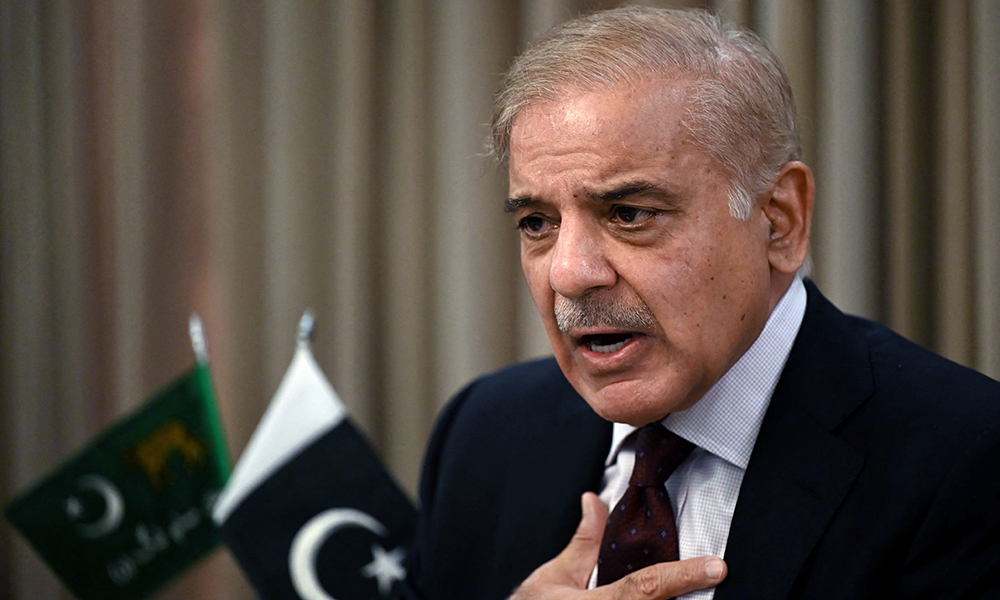Following Pakistan’s airstrikes in Paktika and Khost provinces on Monday, Pakistan’s Prime Minister Shehbaz Sharif said Islamabad will not tolerate any form of cross border terrorism.
He said during a cabinet meeting on Wednesday: “We will not tolerate any form of terrorism from across the borders under any circumstances.”
Sharif emphasized that Pakistan’s borders are a red line against terrorism and that “terrorism must be eradicated.”
In the past year, Pakistan has consistently accused the Islamic Emirate of Afghanistan (IEA) of supporting terrorist groups such as the Tehreek- e-Taliban Pakistan (TTP) and has repeatedly urged the IEA to take serious action against this group and hand over its leaders to Pakistan.
However, the IEA has consistently denied Pakistan’s allegations.
Pakistan’s Defense Minister Khawaja Asif meanwhile says his country does not want to engage in an armed conflict with Afghanistan.
“Force is the last resort. We do not want to have an armed conflict with Afghanistan,” Asif said, speaking exclusively to VOA.
However, he warned that Islamabad could block the corridor it provides to landlocked Afghanistan for trade with India, saying Pakistan has the right to stop facilitating Kabul if it fails to curb anti-Pakistan terrorists operating on Afghan soil, VOA reported.
“If Afghanistan treats us like an enemy, then why should we give them a trade corridor?” he said.
This comes after Monday’s airstrikes against alleged militant hideouts in Paktika and Khost provinces in Afghanistan following an insurgent attack by Tehreek-e-Taliban (TTP) in Pakistan’s Waziristan on Saturday.
Pakistan claims Afghanistan’s leaders are not cracking down on TTP in the country – a claim the IEA rejects.
Five women and three children were killed in Monday’s airstrikes. IEA spokesperson Zabihullah Mujahid meanwhile warned of serious consequences earlier this week.
“Pakistan should not blame Afghanistan for the lack of control, incompetence and problems in its own territory. Such incidents can have very bad consequences, which will be out of Pakistan’s control,” Mujahid said in a statement.
Following the airstrikes, security forces along the Durand Line retaliated and targeted Pakistani military posts with “heavy weapons.”
Since Tuesday, a tense calm has prevailed along the 2,600-kilometer-long border.
Experts meanwhile say that while the IEA does not have the military might to attack Pakistan, the Islamic Emirate could use unconventional means, including actively supporting anti-Pakistan militants, to respond if aggression from Islamabad grows.
“If they can harm us, then we’ll be forced to [retaliate],” Asif said, while expressing hope that Afghanistan would meet the “single demand” of reining in TTP, preventing the need for future military strikes from Pakistan.
Reacting to Monday’s strikes, the U.S. State Department urged Pakistan and Afghan Taliban to take steps to address differences.
“We urge the Taliban to ensure that terrorist attacks are not launched from Afghan soil, and we urge Pakistan to exercise restraint and ensure civilians are not harmed in their counterterrorism efforts,” deputy spokesperson Vedant Patel told the media during a regular press briefing Monday.
Meanwhile, former Pakistani information minister Jan Achakzai warns that if the IEA keeps attacking Pakistan, Islamabad may seize the “Wakhan corridor.”
Achakzai wrote on his social media platform X on Wednesday that Pakistan would swiftly enter Afghanistan and annex the Wakhan corridor to gain access to the Central Asian countries.
The Wakhan Corridor is a narrow strip of land in northeastern Afghanistan, extending between Tajikistan, Pakistan, and China. It serves as a buffer zone between Afghanistan and its neighbors.
The Wakhan Corridor has historically been a significant trade route connecting Central Asia with South Asia and the Middle East. It played a crucial role in the ancient Silk Road network.











